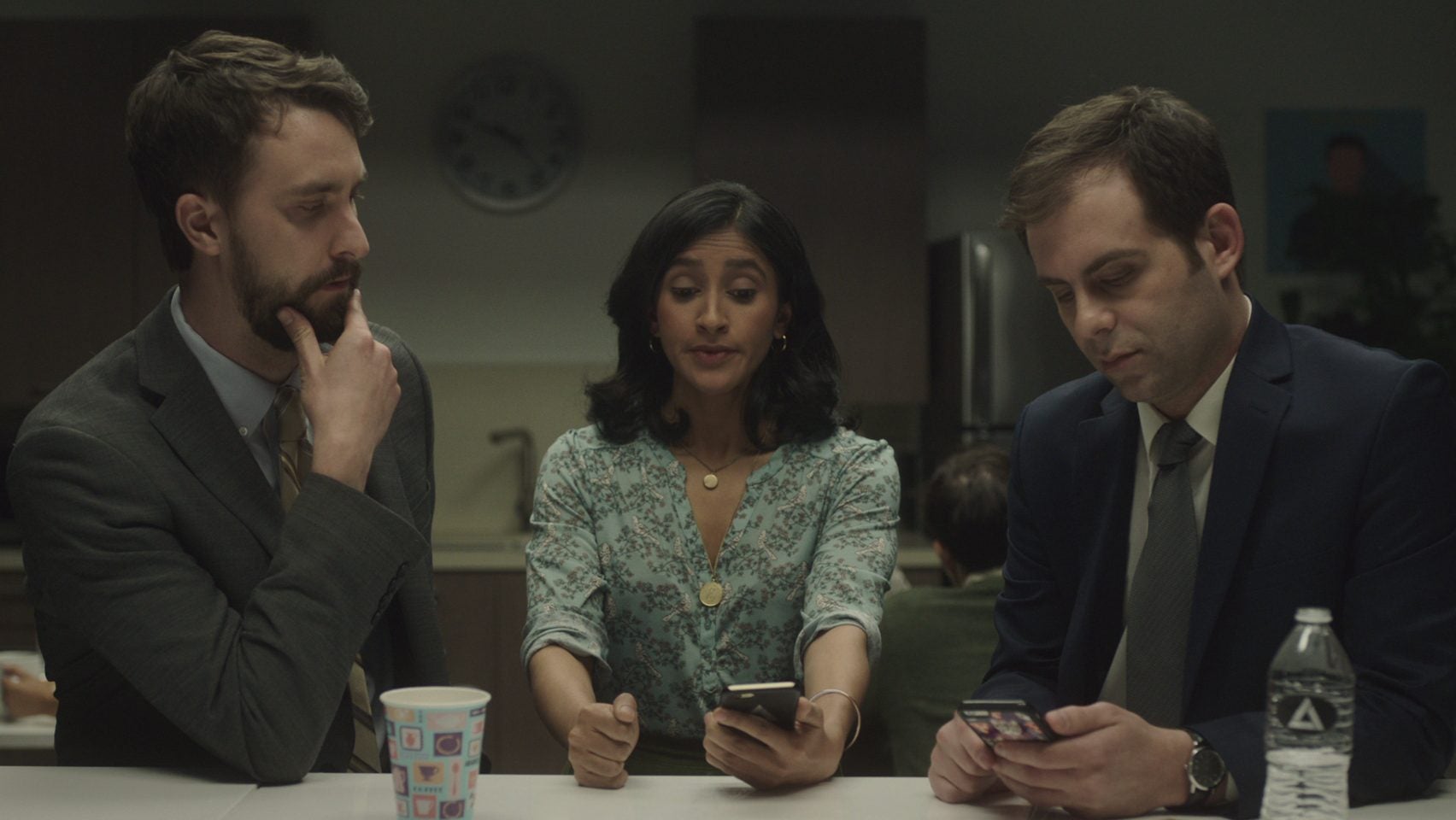Comedy Central’s new, darkly hilarious “Corporate” reminds us why we hate work
It’s hard to identify the moment when work culture became a warm and fuzzy concept, where “vulnerability” is prized and authenticity valued above all else. But it has happened. Admittedly, Quartz at Work may be complicit in supporting that narrative about a new, softer workplace where employees feel included and empowered, and where it’s “safe” to fail.


It’s hard to identify the moment when work culture became a warm and fuzzy concept, where “vulnerability” is prized and authenticity valued above all else. But it has happened. Admittedly, Quartz at Work may be complicit in supporting that narrative about a new, softer workplace where employees feel included and empowered, and where it’s “safe” to fail.
But a new comedy from Comedy Central skewers this upbeat take on life at work, while also taking down capitalism and greed itself. Corporate, as the Daily Beast has noted, is nothing like The Office, which was supposed to be satirical, but became increasingly sweet with time. Corporate is dark to the core, calling to mind a previous generation’s take on work as a prison, where your ideas are ignored, there are only enough morning meeting danishes for the top executives, the CEO is terrifying, and “doing your job” means delegating to employees lower on the totem pole, staffers who should think of themselves as “tools.”
In other words, it’s a nice break from the pressure to pretend that our work is where we develop into full, self-aware, compassionate people. (Now and then, a management study will remind of us of the same thing. See: “Employees at socially conscious companies are more likely to lie.” )
Co-stars Jake Weisman and Matt Ingebretson, and Pat Bishop, the director—all previously known for web projects, (Weisman and Bishop were part of Women, a sketch comedy show)—created Corporate, which premieres tonight (January 17). It’s set in a company called Hampton DeVille, a global conglomerate with tentacles in virtually every industry, including fast food, weaponry, and oversized consumer technology. Some of its office rules are clearly pulled from today’s most cutting-edge and, some would say, harrowing office cultures, like that of Bridgewater, the world’s largest hedge fund, where feedback is constant and colleagues rate each others’ presentations with dots.
At Hampton DeVille, for instance, office posters remind employees that “confrontational criticism” is encouraged.
Reviewing the show, the L.A. Times television critic writes that shows like The IT Crowd and Workaholics are “precursors to Corporate,” but adds “their tone, even when downbeat, is less thoroughly hopeless than here.”
Sadly, this depiction of despair was inspired by real life. The shows creators also did field studies, interviewing people who have worked at mega-employers like Google and Amazon, and learning that life at such organizations is worse than they thought. The Daily Beast reports:
One of the most crucial insights they gleaned is that “shit rolls down hill,” Weisman adds. “People just yell at the people below them and everyone’s in fear.” They consistently heard from real-life workers that “the job is to yell at the people below you and take shit from people above you.”
Ingebretson also pulled from his experience in marketing jobs at large companies. “If you’ve ever had a shitty boss in any job, they have the capacity to ruin your life,” Ingebretson told the Beast. “You kind of sign your life over to these people, hoping that they are good people.”
Christian DeVille, Hampton DaVille’s CEO played by Lance Reddick of The Wire fame, is not good people. He is a Cruella, as his last name (and sometimes cartoonish displays of strength) would imply.
Between the suicide attempts and powerpoint font jokes, however, there is an earnest message embedded in the dimly lit show, and it’s one that management research has covered pretty extensively: Surviving work requires having at least one good friend.
Work is hell, Corporate suggests. You shouldn’t have to go there alone.